#vivien merchant
Photo
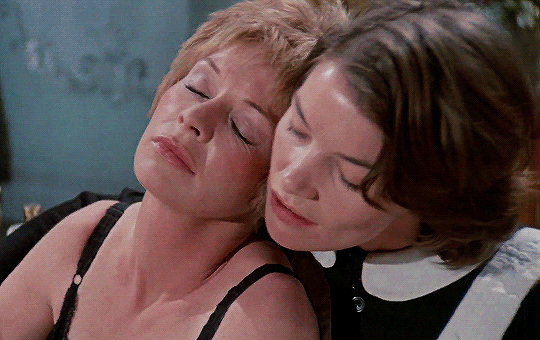
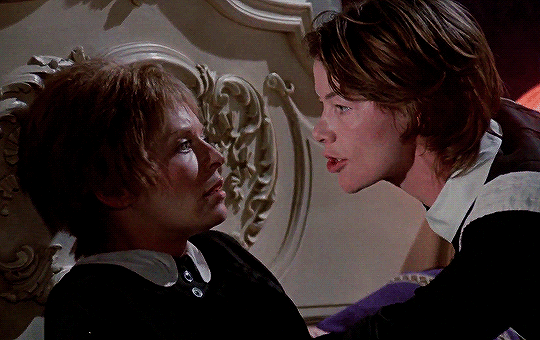

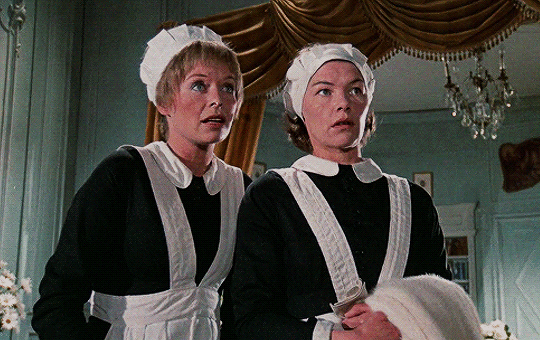
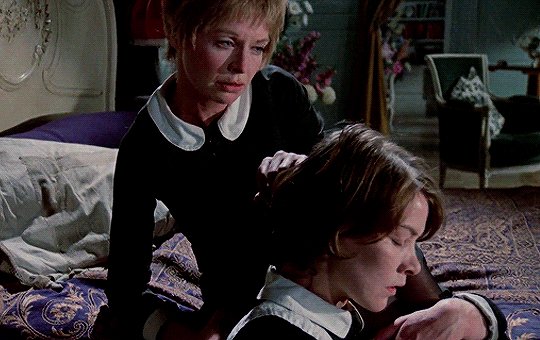
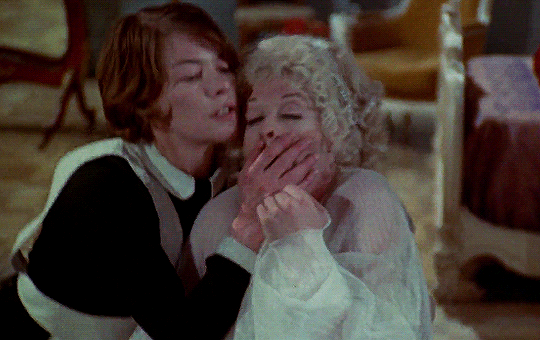

-When slaves love each other, it’s not love.
-No...But it’s just as serious.
GLENDA JACKSON and SUSANNAH YORK as Solange and Claire in THE MAIDS (1975)
#the maids#glenda jackson#susannah york#gif edit#movie edit#film edit#vivien merchant#gifs by me#pls they are sisters#i don't want nothing weird in my notes#tho glenda and susannah do act a little weird#but sisters do be like that
135 notes
·
View notes
Text





The Maids (1975) Christopher Miles
July 16th 2023
#the maids#1975#christopher miles#glenda jackson#susannah york#vivien merchant#mark burns#jean genet#jean genet's the maids
8 notes
·
View notes
Text
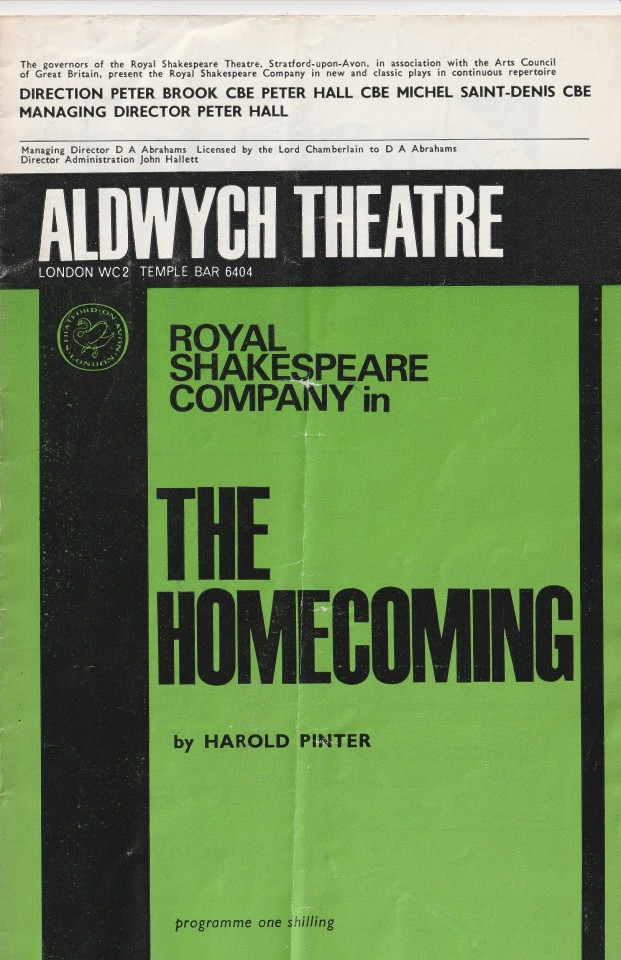
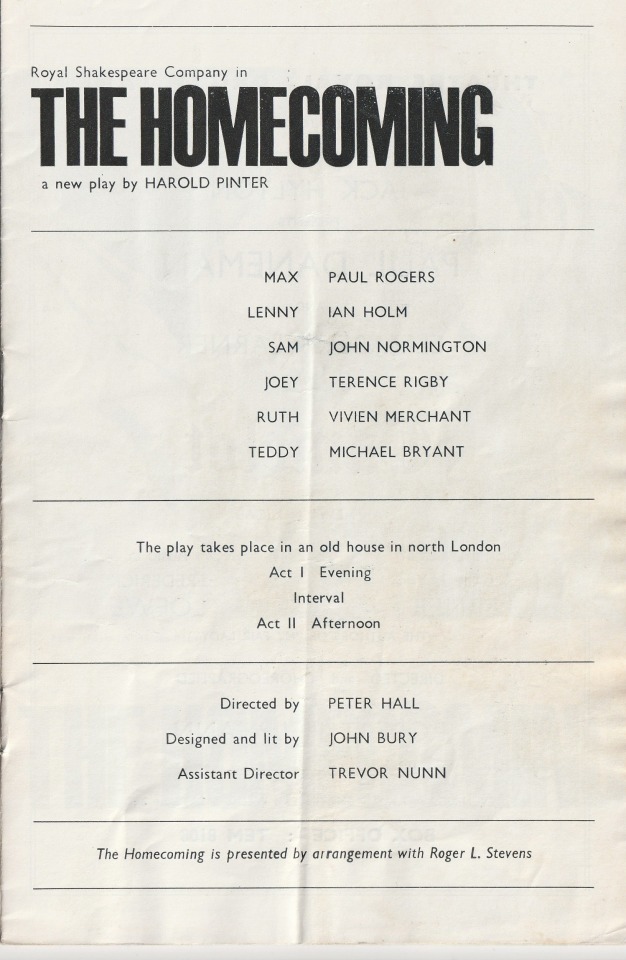
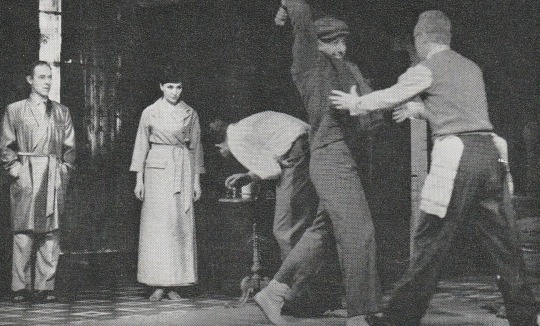
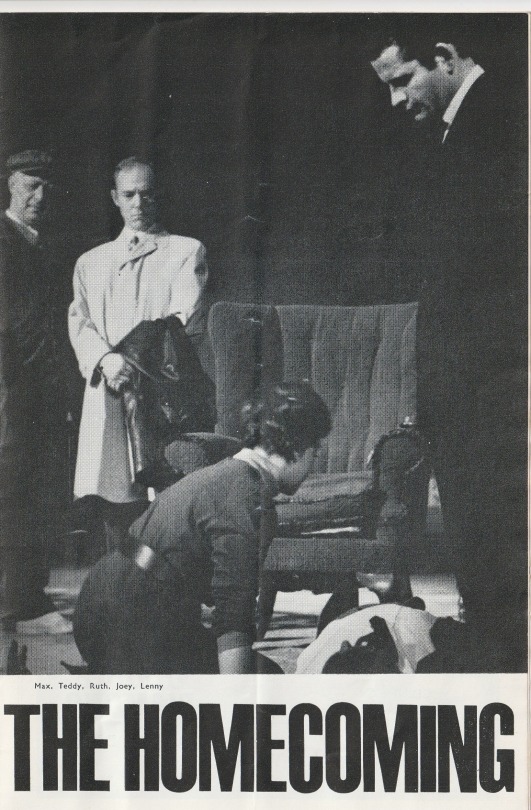
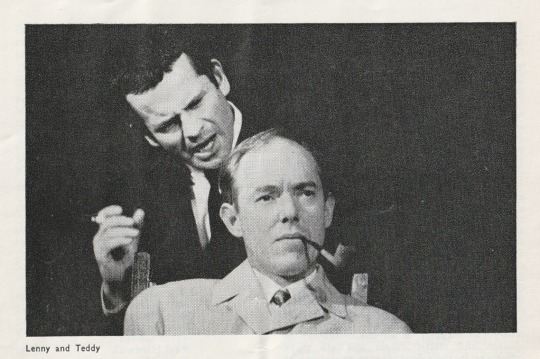

After joining the RSC in 1964, the following year Michael Bryant appeared in the premiere of Harold Pinter's play The Homecoming, directed by Peter Hall.
#michael bryant#teddy#the homecoming#harold pinter#peter hall#paul rogers#ian holm#john normington#vivien merchant#terence rigby#aldwych#rsc
9 notes
·
View notes
Photo
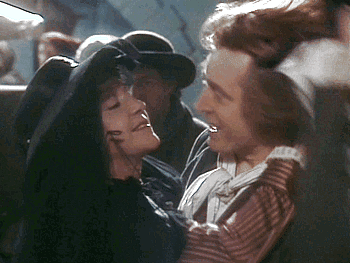

Vivien Merchant and David Collings as Miss Pross and John Barsad, reunited, in A Tale of Two Cities (BBC 1980).
#a tale of two cities#gif#john barsad#miss pross#vivien merchant#david collings#1980s#period drama#book adaptations#kissing#brothers & sisters#david collings's hair#this is kind of sweet (and also sad) because barsad is supposed to be trying to avoid his sister's embraces#which i don't think requires all this kissing so ahem actors lol#and the first time i saw it i had to go look up vivien merchant in case wiki gave me a clue why#and sadly it did as she was in a bad way following her divorce from harold pinter in 1980#(she would essentially drink herself to death within two years :()#I was reminded of this#because they were both also in breakaway and it suddenly dawned on me she was the one he was kissing in this
10 notes
·
View notes
Photo

- Let's hope he slips up soon.
- In one way I rather hope he doesn't. We haven't had a good juicy series of sex murders since Christie. And they're so good for the tourist trade. Foreigners somehow expect the squares of London to be fog-wreathed, full of hansom cabs and littered with ripped whores, don't you think?
Frenzy, Alfred Hitchcock (1972)
#Alfred Hitchcock#Anthony Shaffer#Jon Finch#Barry Foster#Barbara Leigh Hunt#Anna Massey#Alec McCowen#Vivien Merchant#Billie Whitelaw#Clive Swift#Bernard Cribbins#Michael Bates#Jean Marsh#Gilbert Taylor#Ron Goodwin#John Jympson#1972
5 notes
·
View notes
Text
Watch "Alfie (1/9) Movie CLIP - A Married Woman (1966) HD" on YouTube
youtube
And I'll watch it a thousand times more...❤️❤️❤️❤️❤️
#Youtube#lewis gilbert#michael caine#vivien merchant#shelley winters#60s film#british cinema#films i love
1 note
·
View note
Text
Blu-ray Review: “The Offence” (1973)

View On WordPress
#bluray#bluray review#film#horror#movie review#movies#Review#Sean Connery#sidney lumet#The Offence#The Offence bluray#The Offence bluray review#Trevor Howard#Vivien Merchant
0 notes
Text

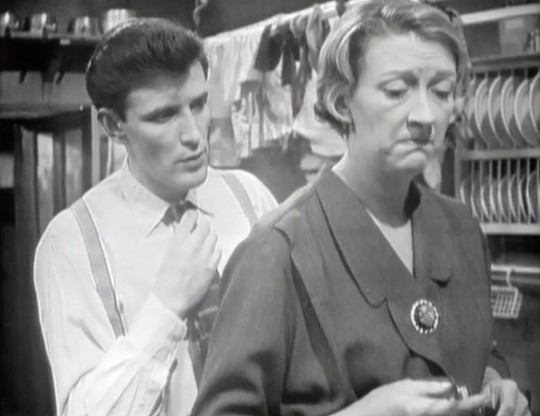
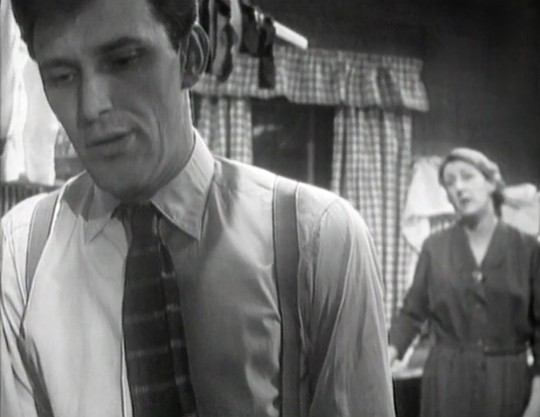
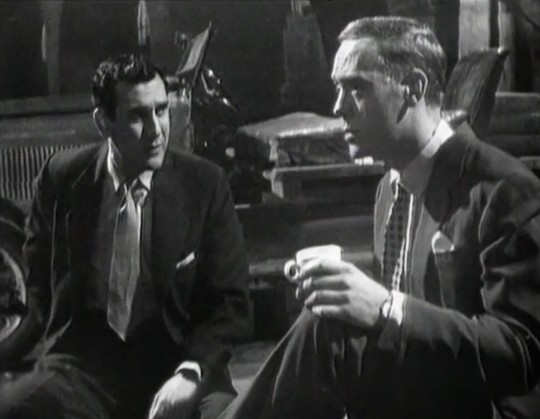
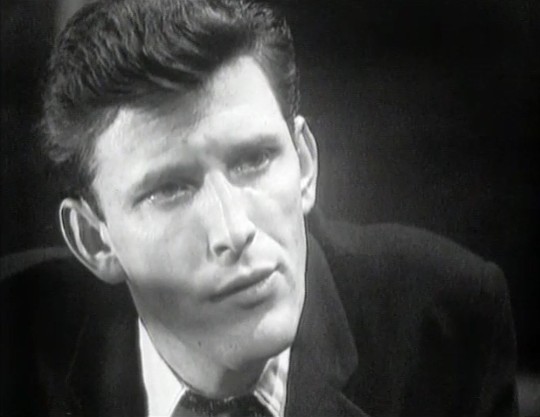
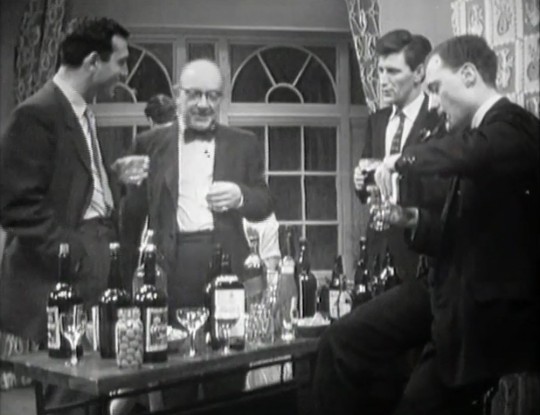

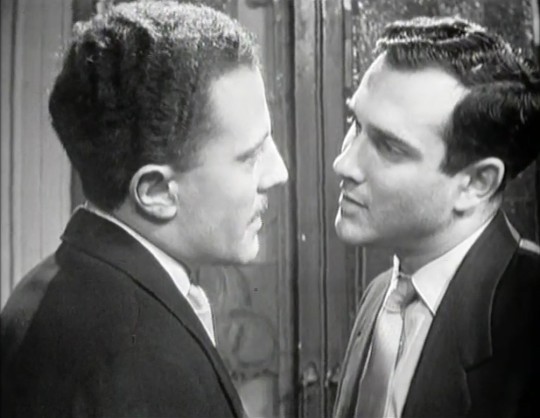
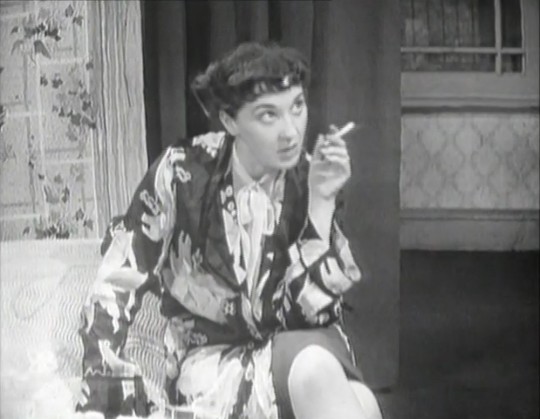

Armchair Theatre - A Night Out (1960) dir. Philip Saville, writer. Harold Pinter
Starring: Tom Bell, Made Ryan, Harold Pinter, Philip Locke, Stanley Meadows, Arthur Lowe, Vivien Merchant
#armchair theatre#a night out#1960#harold pinter#philip saville#tom bell#stanley meadows#madge ryan#arthur lowe#vivien merchant#philip locke#screencaps#screengrabs#my edits
0 notes
Text
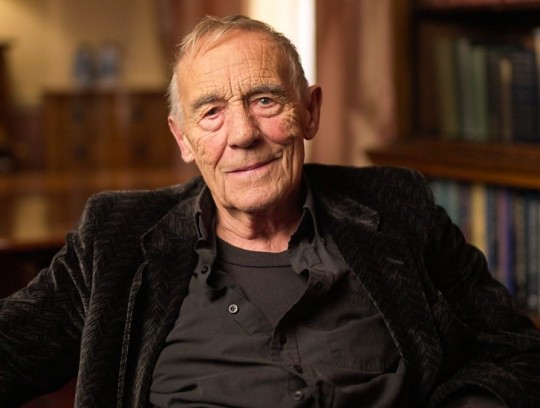
The actor Michael Jayston, who has died aged 88, was a distinguished performer on stage and screen. The roles that made his name were as the doomed Tsar Nicholas II of Russia in Franklin Schaffner’s sumptuous account of the last days of the Romanovs in Nicholas and Alexandra (1971), and as Alec Guinness’s intelligence minder in John Le Carré’s Tinker Tailor Soldier Spy on television in 1979. He never made a song and dance about himself and perhaps as a consequence was not launched in Hollywood, as were many of his contemporaries.
Before these two parts, he had already played a key role in The Power Game on television and Henry Ireton, Cromwell’s son-in-law, in Ken Hughes’s fine Cromwell (1969), with Richard Harris in the title role and Guinness as King Charles I. And this followed five years with the Royal Shakespeare Company including a trip to Broadway in Harold Pinter’s The Homecoming, in which he replaced Michael Bryant as Teddy, the brother who returns to the US and leaves his wife in London to “take care of” his father and siblings.
Jayston, who was not flamboyantly good-looking but clearly and solidly attractive, with a steely, no-nonsense, demeanour and a steady, piercing gaze, could “do” the Pinter menace as well as anyone, and that cast – who also made the 1973 movie directed by Peter Hall – included Pinter’s then wife, Vivien Merchant, as well as Paul Rogers and Ian Holm.
Jayston had found a replacement family in the theatre. Born Michael James in Nottingham, he was the only child of Myfanwy (nee Llewelyn) and Vincent; his father died of pneumonia, following a serious accident on the rugby field, when Michael was one, and his mother died when he was a barely a teenager. He was then brought up by his grandmother and an uncle, and found himself involved in amateur theatre while doing national service in the army; he directed a production of The Happiest Days of Your Life.
He continued in amateur theatre while working for two years as a trainee accountant for the National Coal Board and in Nottingham fish market, before winning a scholarship, aged 23, to the Guildhall School of Music and Drama in London, where he was five years older than everyone else on his course. He played in rep in Bangor, Northern Ireland, and at the Salisbury Playhouse before joining the Bristol Old Vic for two seasons in 1963.
At the RSC from 1965, he enjoyed good roles – Oswald in Ghosts, Bertram in All’s Well That Ends Well, Laertes to David Warner’s Hamlet – and was Demetrius in Hall’s film of A Midsummer Night’s Dream (1968), with Warner as Lysander in a romantic foursome with Diana Rigg and Helen Mirren.
But his RSC associate status did not translate itself into the stardom of, say, Alan Howard, Warner, Judi Dench, Ian Richardson and others at the time. He was never fazed or underrated in this company, but his career proceeded in a somewhat nebulous fashion, and Nicholas and Alexandra, for all its success and ballyhoo, did not bring him offers from the US.
Instead, he played Charles Lutwidge Dodgson (Lewis Carroll) in Alice’s Adventures in Wonderland (1972), a so-so British musical film version with music and lyrics by John Barry and Don Black, with Michael Crawford as the White Rabbit and Peter Sellers the March Hare. In 1979 he was a colonel in Zulu Dawn, a historically explanatory prequel to the earlier smash hit Zulu.
As an actor he seemed not to be a glory-hunter. Instead, in the 1980s, he turned in stylish and well-received leading performances in Noël Coward’s Private Lives, at the Duchess, opposite Maria Aitken (1980); as Captain von Trapp in the first major London revival of The Sound of Music at the Apollo Victoria in 1981, opposite Petula Clark; and, best of all, as Mirabell, often a thankless role, in William Gaskill’s superb 1984 revival, at Chichester and the Haymarket, of The Way of the World, by William Congreve, opposite Maggie Smith as Millamant.
Nor was he averse to taking over the leading roles in plays such as Peter Shaffer’s Equus (1973) or Brian Friel’s Dancing at Lughnasa (1992), roles first occupied in London by Alec McCowen. He rejoined the National Theatre – he had been Gratiano with Laurence Olivier and Joan Plowright in The Merchant of Venice directed by Jonathan Miller in 1974 – to play a delightful Home Counties Ratty in the return of Alan Bennett’s blissful, Edwardian The Wind in the Willows in 1994.
On television, he was a favourite side-kick of David Jason in 13 episodes of David Nobbs’s A Bit of a Do (1989) – as the solicitor Neville Badger in a series of social functions and parties across West Yorkshire – and in four episodes of The Darling Buds of May (1992) as Ernest Bristow, the brewery owner. He appeared again with Jason in a 1996 episode of Only Fools and Horses.
He figured for the first time on fan sites when he appeared in the 1986 Doctor Who season The Trial of a Time Lord as Valeyard, the prosecuting counsel. In the new millennium he passed through both EastEnders and Coronation Street before bolstering the most lurid storyline of all in Emmerdale (2007-08): he was Donald de Souza, an unpleasant old cove who fell out with his family and invited his disaffected wife to push him off a cliff on the moors in his wheelchair, but died later of a heart attack.
By now living on the south coast, Jayston gravitated easily towards Chichester as a crusty old colonel – married to Wendy Craig – in Coward’s engaging early play Easy Virtue, in 1999, and, three years later, in 2002, as a hectored husband, called Hector, to Patricia Routledge’s dotty duchess in Timberlake Wertenbaker’s translation of Jean Anouilh’s Léocadia under the title Wild Orchids.
And then, in 2007, he exuded a tough spirituality as a confessor to David Suchet’s pragmatic pope-maker in The Last Confession, an old-fashioned but gripping Vatican thriller of financial and political finagling told in flashback. Roger Crane’s play transferred from Chichester to the Haymarket and toured abroad with a fine panoply of senior British actors, Jayston included.
After another collaboration with Jason, and Warner, in the television movie Albert’s Memorial (2009), a touching tale of old war-time buddies making sure one of them is buried on the German soil where first they met, and a theatre tour in Ronald Harwood’s musicians-in-retirement Quartet in 2010 with Susannah York, Gwen Taylor and Timothy West, he made occasional television appearances in Midsomer Murders, Doctors and Casualty. Last year he provided an introduction to a re-run of Tinker Tailor on BBC Four. He seemed always to be busy, available for all seasons.
As a keen cricketer (he also played darts and chess), Jayston was a member of the MCC and the Lord’s Taverners. After moving to Brighton, he became a member of Sussex county cricket club and played for Rottingdean, where he was also president.
His first two marriages – to the actor Lynn Farleigh in 1965 and the glass engraver Heather Sneddon in 1970 – ended in divorce. From his second marriage he had two sons, Tom and Ben, and a daughter, Li-an. In 1979 he married Ann Smithson, a nurse, and they had a son, Richard, and daughter, Katie.
🔔 Michael Jayston (Michael James), actor, born 29 October 1935; died 5 February 2024
Daily inspiration. Discover more photos at Just for Books…?
12 notes
·
View notes
Photo

Anna Massey and Barry Foster in Frenzy (Alfred Hitchcock, 1972)
Cast: Jon Finch, Barry Foster, Barbara Leigh-Hunt, Anna Massey, Alec McCowen, Vivien Merchant, Billie Whitelaw, Clive Swift, Bernard Cribbins, Jean Marsh. Screenplay: Anthony Shaffer, based on a novel by Arthur La Bern. Cinematography: Gilbert Taylor. Film editing: John Jympson
Frenzy is so often called a "return to form" by critics commenting on Alfred Hitchcock's films that it's worth parsing that phrase a bit. What's generally meant is that after the triumph of Psycho (1960), Hitchcock's films seemed to decline in quality: To the critics of the day, The Birds (1963) felt like a gimmicky monster movie, Marnie (1964) an overdone, miscast psychological drama, Torn Curtain (1966) and Topaz (1969) attempts to cash in on the James Bond-era vogue for spy movies. Later generations of critics have found intelligent things to say about some of these films (though there are few ardent defenders of Torn Curtain and Topaz), largely because of their ability to see the Hitchcock oeuvre as a whole and to work in the revelations of the Hitchcock biographers about the director's obsessions and predilections. But Frenzy was for many mainstream critics what Roger Ebert called it: "the kind of thriller Hitchcock was making in the 1940s, filled with macabre details, incongruous humor, and the desperation of a man convicted of a crime he didn't commit." I would qualify that observation with the remark that Frenzy is the kind of film Hitchcock couldn't have made in the 1940s because of the Production Code's restrictions on nudity, sex outside of marriage, and excessive violence. Liberated from the Code, Frenzy is rated R. And I think Hitchcock's delighted rush into the new era of frankness in film may have had a destructive effect on his ability to maintain consistency of tone. A scene like the rape-murder of Brenda Blaney (Barbara Leigh-Hunt) belongs to a different kind of film than the domestic comedy of Inspector Oxford (Alec McCowen) and his gourmet-cook wife (Vivien Merchant), and there's something a little too obvious about the snap of Mrs. Oxford's bread stick as her husband is recounting how Rusk had to break Babs Milligan's (Anna Massey) fingers to retrieve his stickpin. There is no heart in the film, the way there was in films of the 1940s like Shadow of a Doubt (1943) or Notorious (1946), in which we could feel anxiety over the plight of the characters. Hitchcock does seem to want us to feel some real-world horror at Brenda's reciting Psalm 91 and trying to cover her bared breast as she's being raped, but even that invocation of sympathy feels out of place later, especially when Babs's corpse is treated for comedy when her feet keep finding their way into Rusk's face. And a "joke" like that of the man in the pub who quips "every cloud has a silver lining" on learning that the killer rapes his victims before strangling them should never have found its way onto film. There is much to admire in Frenzy: Hitchcock never did a more skillful scene than the one in which the camera follows Babs and Rusk (Barry Foster) up to the flat where we know she's going to die, and then silently retreats back down the stairs and across the busy street. McCowen and Merchant skillfully play the comedy of the husband and wife dinner table scenes -- the soupe aux poissons is particularly unappetizing. I especially like the bit in which Mrs. Oxford offers a drink to the sergeant who brings news of the case to the inspector: It's a new cocktail called a "margarita," she explains, made with what she pronounces "tekwila." The sergeant has to leave, however, so she swigs the drink he has abandoned and then, with a rather odd look on her face, hastily makes her exit. But too often in Frenzy what Hitchcock thinks is naughty is just nasty.
2 notes
·
View notes
Video
The Offence
Director: Sidney Lumet | UK, 1973
Starring: Sean Connery, Ian Bannen, & Vivien Merchant
3 notes
·
View notes
Photo
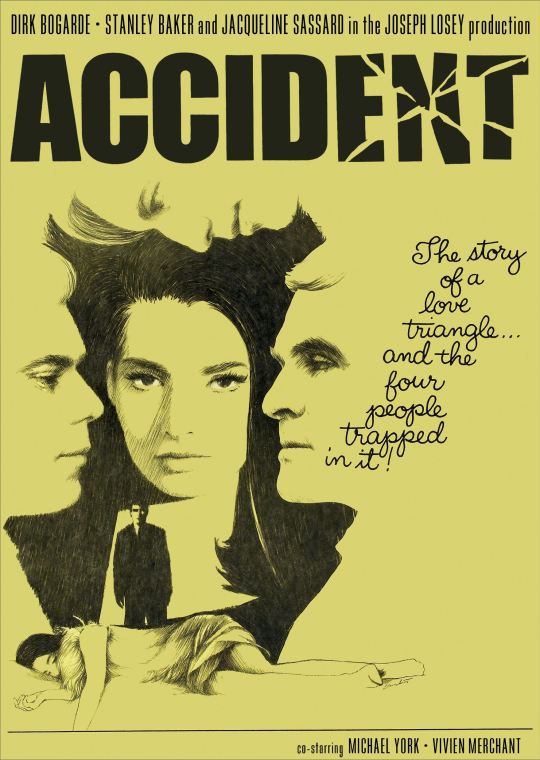
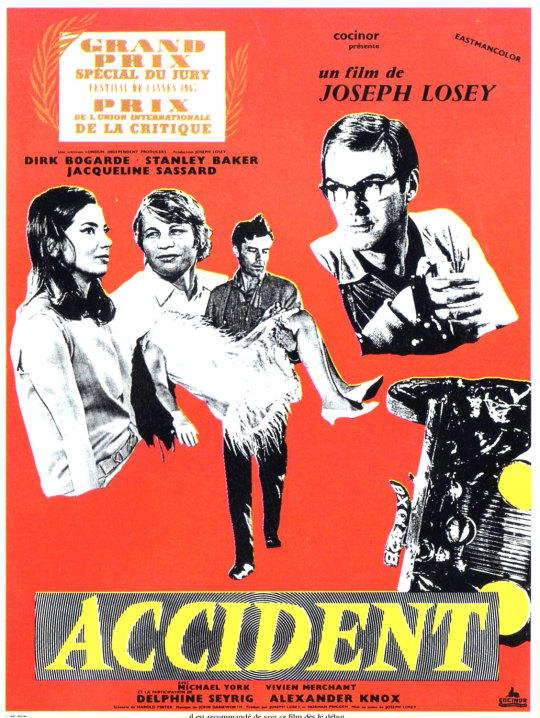
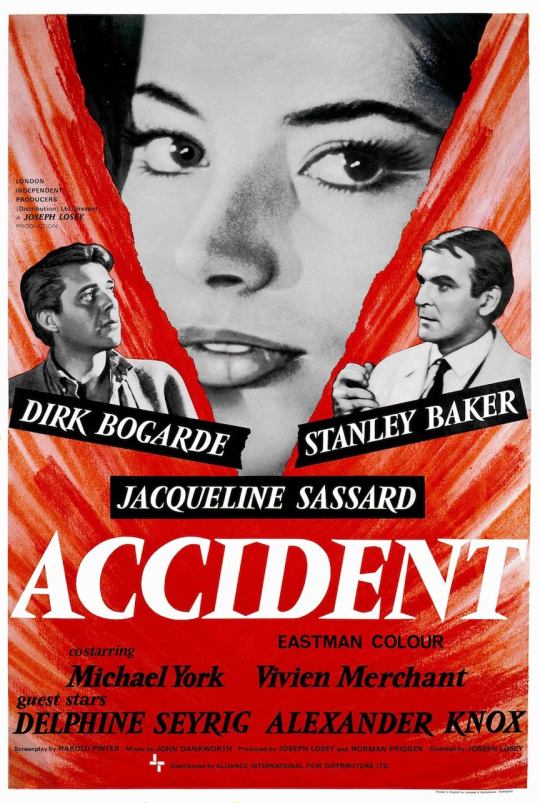
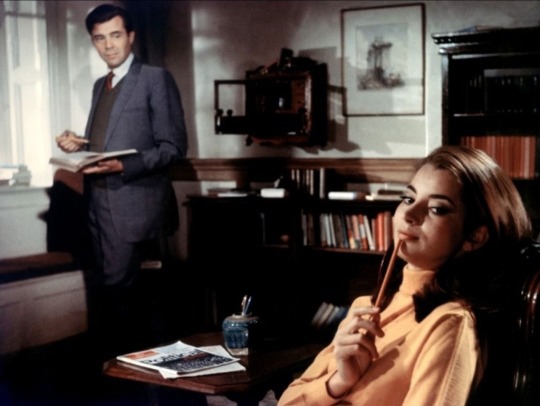

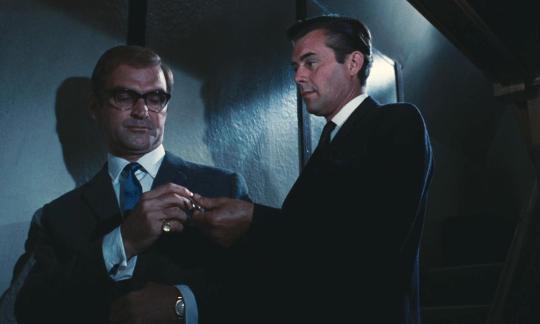
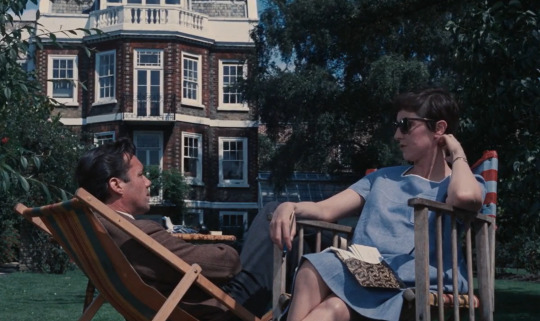
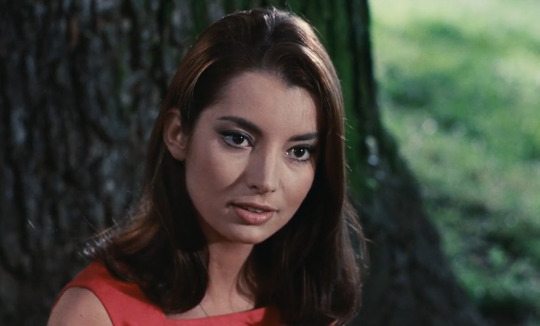
Accident (1967) Joseph Losey
September 3rd 2022
#accident#1967#joseph losey#dirk bogarde#jacqueline sassard#stanley baker#michael york#vivien merchant#delphine seyrig#alexander knox#harold pinter
11 notes
·
View notes
Text
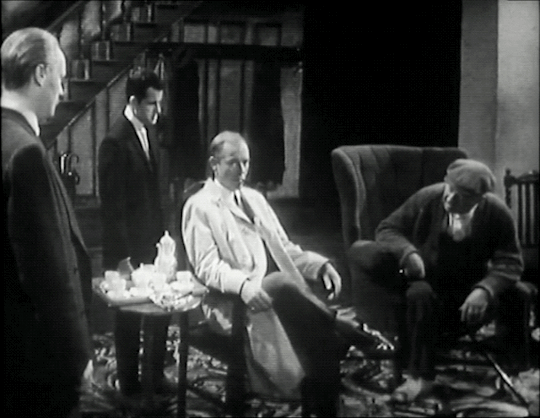
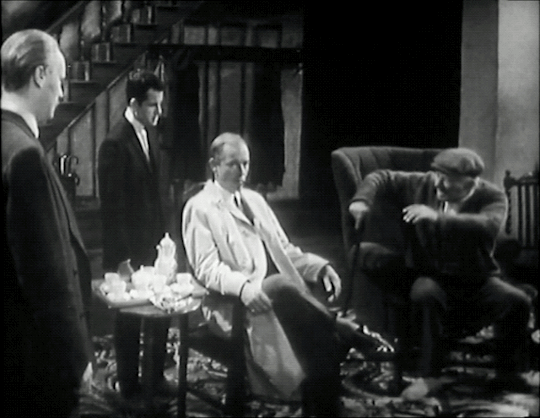
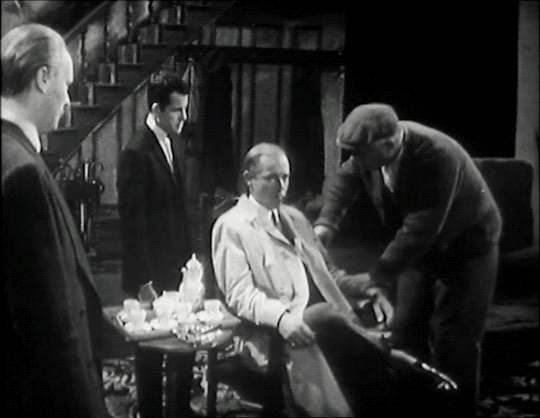
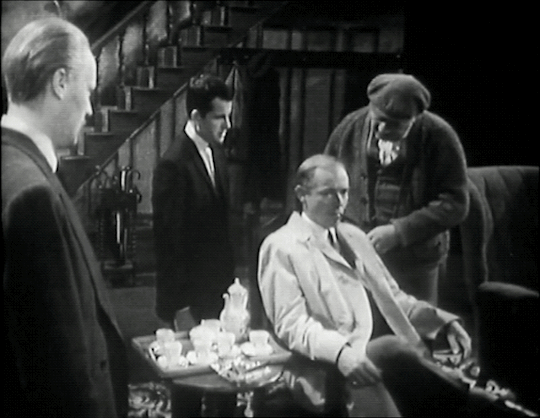
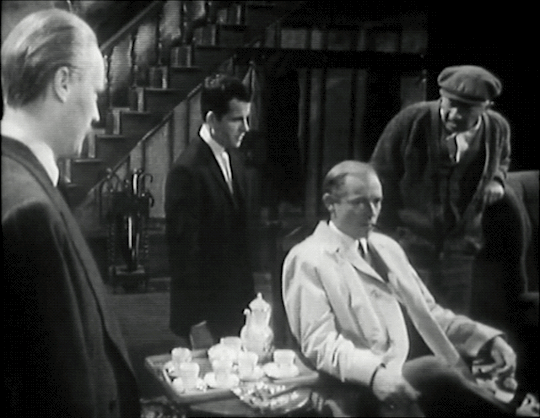
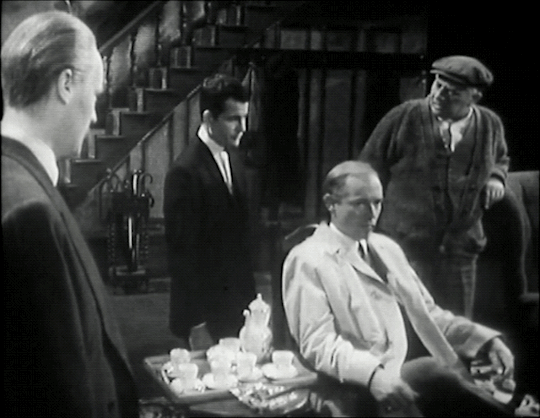
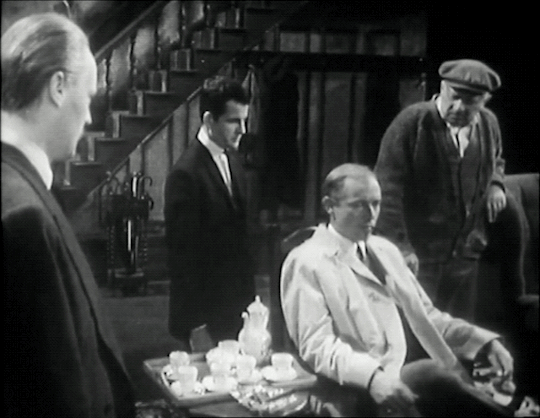

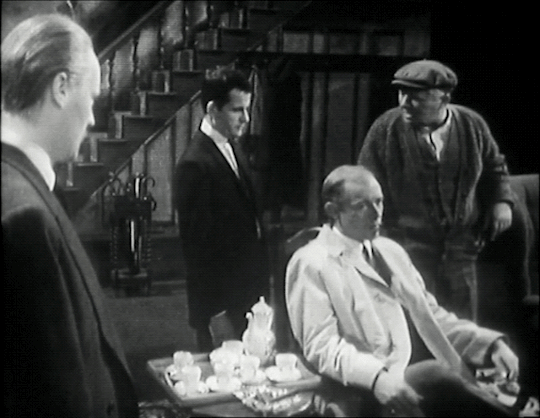
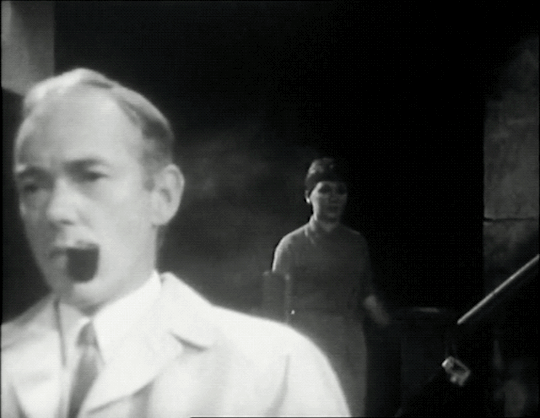
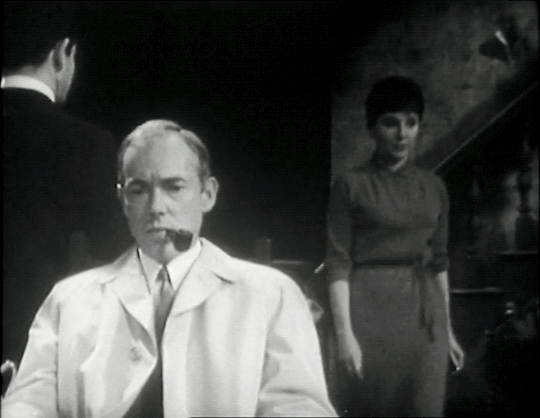
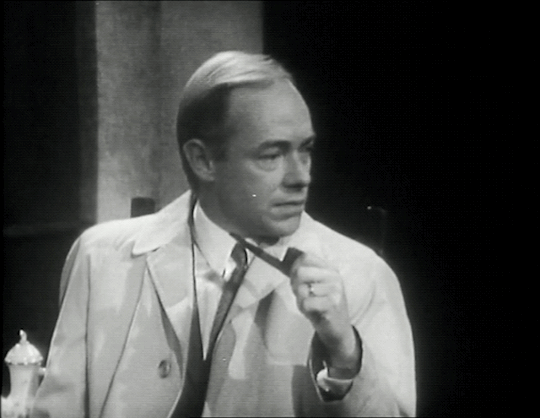
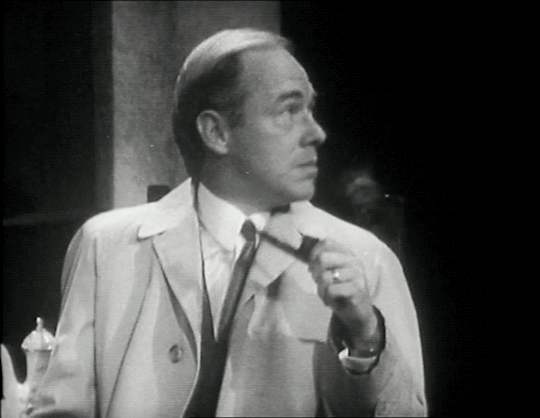
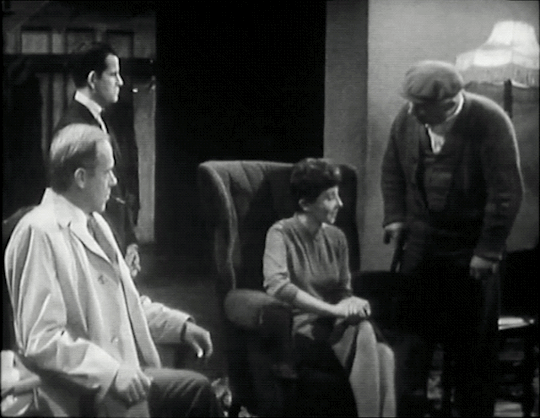
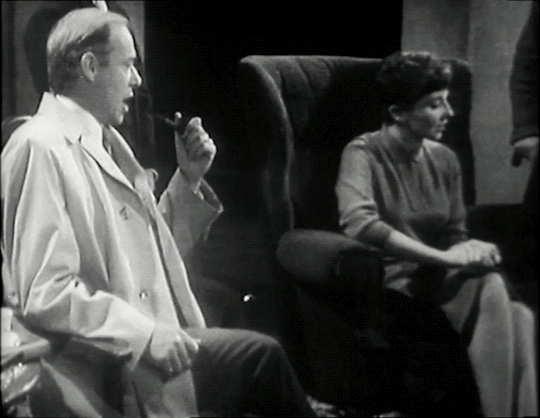
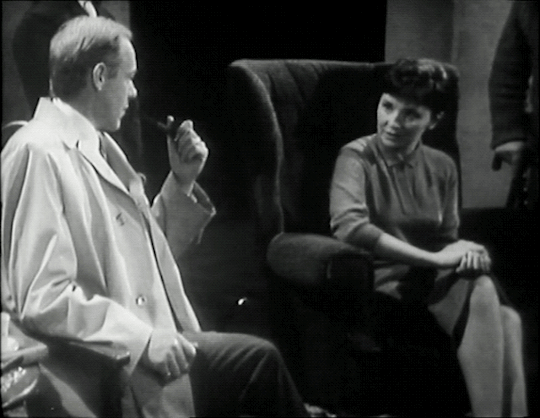
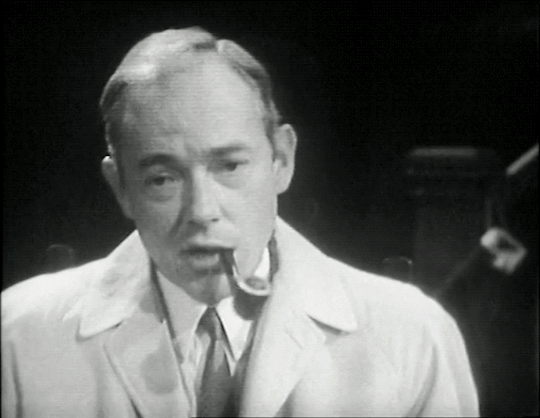
In 1965, the ITV arts series 'Tempo' screened a profile on Harold Pinter featuring his new play 'The Homecoming' which was performed for the first time that year by the RSC. Michael Bryant played Teddy, the son who had escaped the claustrophobic family home and made a new life for himself in America a a professor of philosophy. In the play, Teddy was retuning to the London family home with his wife for the first time, a decision which was to have dramatic consequences...
Set 2 of 2
#michael bryant#teddy#the homecoming#tempo#harold pinter#ian holm#paul rogers#terence rigby#vivien merchant#john normington#peter hall
3 notes
·
View notes
Photo


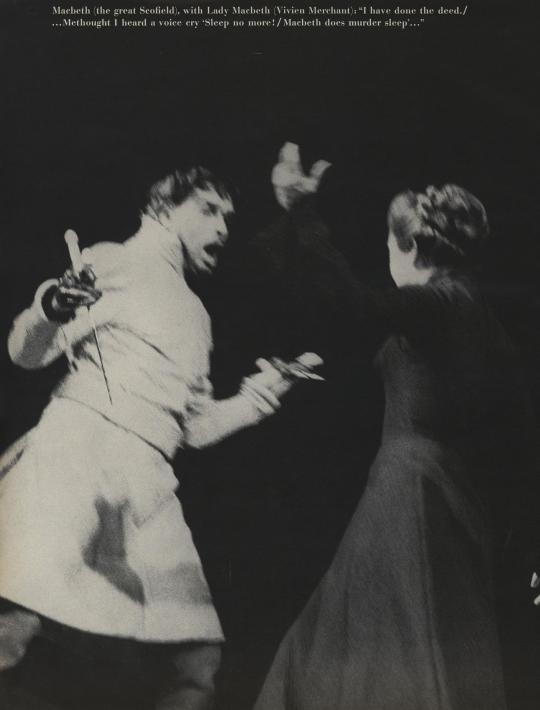
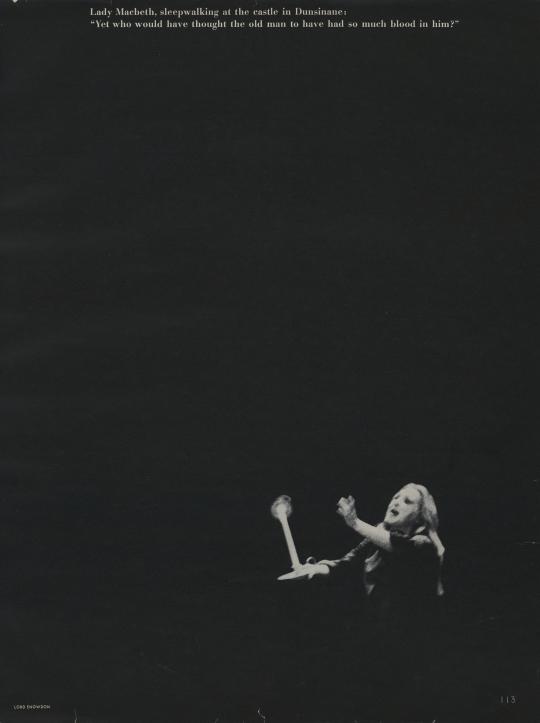
looking at these snowdon vogue spread of the paul scofield/vivien merchant macbeth and thinking abt how rsc people were planning to film the production but the show flopped so the project folded :///
4 notes
·
View notes
Text
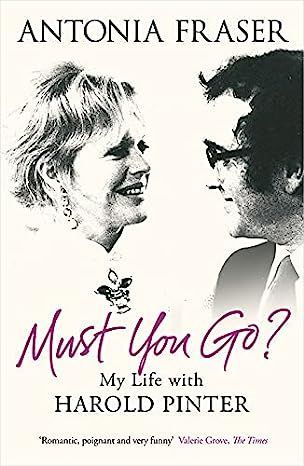
Must You Go?: My Life with Harold Pinter by Lady Antonia Fraser
'I first saw Harold across a crowded room, but it was lunchtime, not some enchanted evening, and we did not speak.'
When Antonia Fraser met Harold Pinter she was a celebrated biographer and he was Britain's finest playwright. Both were already married - Pinter to the actress Vivien Merchant and Fraser to the politician Hugh Fraser - but their union seemed inevitable from the moment they met: 'I would have found you somehow', Pinter told Fraser. Their relationship flourished until Pinter's death on Christmas Eve 2008 and was a source of delight and inspiration to them both until the very end.
Fraser uses her Diaries and her own recollections to tell a touching love story. But this is also a memoir of a partnership between two of the greatest literary talents, with fascinating glimpses into their creativity and their illustrious circle of friends from the literary, political and theatrical world.
Info:amazon.co.uk
#Must You Go?: My Life with Harold Pinter#Antonia Fraser#book#author#book cover#biography#autobiography#biographer#playwright#theatre#diaries#reading#books
0 notes
Text

1236-1240, 1240, 1241-1243). [1]
Elena Romanovna (or Maria Romanovna)[27 was a daughter of prince Roman Mstislavich of Halych and his wife, Predslava Rurikovna of Kiev [3] Daniel Frick (born 19 June 1978) is a retired Liechtenstein football striker. [1][2] Old Times is a play by Harold Pinter. [1] It was first performed by the Royal Shakespeare Company at the Aldwych Theatre in London on 1 June
1971. It starred Colin Blakely, Dorothy Tutin, and Vivien Merchant, and was directed by Peter Hall.
The play was dedicated to Hall to celebrate his 40th birthday. I Love You Avenue is the third solo album by English singer-songwriter Nick Heyward. It was released in 1988 through Reprise Records and produced two UK singles,
"You're My World' (#67 in the UK Singles Chart)
[3] and "Tell Me Why'. The Venezuela national under-20 football team represents Venezuela in international men's football competitions such as South American Youth Championship. [1] The team became runners-up in the 2017 FIFA U-20
World Cup. [2] Songs of Drinking and Rebellion is the first studio album released by the indie rock band Spent, in 1995.[2][3] The album was released on Merge Records and was followed by a tour with labelmates Superchunk. The album had no singles; however, a video for the song
"View from a Staircase" was made. Officine Ferroviarie Meridionali or OF was an Italian railway and rolling stock manufacturingJUNGLEWOODNETHERRACKAAAAAANETHERWARTENCHANTMENTTABLEAAAAAAAAAACHORUSFLOWERREDSTONEREPEATERAAAAAAAAREDSTONECOMPARATORTRiPWiREHOOKAAAAAAACOMMANDBLOCKSTiCKYPiSTONALiENSSPECiESAAFAiRiESDEiTiESGODSCLOWNSROBOTSANDROiDSARTiFiCiALiNTELLiGENCESBRAiNSPOWERSAAAAAAiNTELLiGENCEQUOTiENTSWORMSTAPEWORMSATUBESTUMORSCANCERSHOSTSENTiTiESFUNGiSAPARASiTESBACTERiASMiCROORGANiSMSAAAAAAMUSHROOMSSURGERiESSCiENCESPHYSiCSAAAAWiTCHCRAFTSMAGiCSVOODOOSHOODOOSAAAAAWiZARDSWARLOCKSCULTSSECRETSOCiETiESAAAALTEREGOSiNNERDEMONSCROSSROADDEMONSAMEDiCALTREATMENTS CLONES
1 note
·
View note